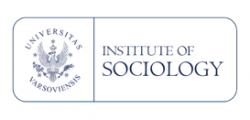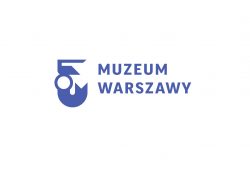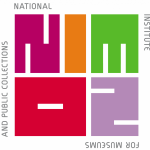Decolonizing Museum Cultures and Collections: Mapping Theory and Practice in East-Central Europe
International conference for heritage scholars and practitioners
University of Warsaw, October 22-23, 2020*
*COVID-19: Given the changing circumstances,
we will consider moving the conference to online remote presentations if need be.
Confirmed keynote speaker:
Prof. Erica Lehrer (Concordia University, Montreal)
In recent years, the debate over ‘decolonization’ has reinvigorated the museum and heritage sector globally, with a range of intensities and agendas. International organizations are being called on to reshape cultural institutions, to reorganize knowledge production and recognize its diverse forms, to share power and authority, to account for multiple perspectives, and to confront historical injustice in museum cultures, practices, structures, narratives, and collections. Important changes are underway in key post-imperial ethnographic and art museums in France, the UK, Germany, the Netherlands, and elsewhere. The Sarr-Savoy report (2018) has prompted some European governments to confront the need for restitution of colonial-era objects head on. The current refugee crisis has further stimulated activists, artists, and journalists to undertake new critical explorations of the legacies of colonialism, and to experiment with creative responses to these, bringing colonialism and its aftermaths to increased public awareness.
This conference brings together curators, artists, scholars, and other intellectuals and cultural activists working on East-Central European heritage, to reflect on how the main trends of decolonial debate are intersecting in practical and theoretical terms with the heritage sector, with a particular focus on museums in the region. Post- and decolonial approaches already have a strong foothold in post-socialist Eastern European scholarship and public discourse with regard to the legacies of Russian/Soviet, German/Nazi, Habsburg, Polish and Ottoman imperialisms. But in practice the impact of decolonial critique has been limited to temporary interventions rather than more sustainable heritage methods and strategies. Similarly, the rediscovery of 19th and 20th century entanglements among East-Central Europe, Asia, and the Global South by historians have been only weakly echoed in the museum sector. Overseas collections in East-Central European museums call for special attention with regard to both their histories and futures. Given these factors, our conference will place special emphasis on mapping both the range of colonial histories embedded in, as well as decolonial approaches to, museum collections and practices in East-Central Europe.
We welcome contributions from countries in the region to explore parallels and entanglements among them. Presenters with relevant comparative and transnational insights beyond East-Central Europe that speak to the region’s concerns will also be considered.
Presentations may focus on (but are not limited to) the following issues:
• Situating East-Central Europe’s museum and heritage sector in relation to the main currents of decolonial debates today;
• Histories of overseas and other post-imperial collections in East-Central European museums;
• Current issues around such museums and their collections, including:
– meanings of and possibilities for decolonizing existing museums in practice;
– opportunities for and constraints on re-interpreting their collections;
– potentials and limits of comparing post-Holocaust and post-colonial collections and decolonial practices, as well as their entanglements;
– potentials and limits of comparing slavery and serfdom in the heritage sector;
– East-Central European museums in relation to international and migrant visitors;
• Examples of decolonial curatorial approaches in East-Central European museums;
• Examples of non-institutionalized, decolonial practices (e.g. artist’s interventions, critical guided tours) in the region.
The conference will also serve as an occasion to present and discuss the results of the research stream City Museums and Multiple Colonial Pasts of the Horizon 2020 project ECHOES (European Colonial Heritage Modalities in Entangled Cities).
Please send a 300-word abstract and a 100-word bio by email to echoes@is.uw.edu.pl by May 15th, 2020. We will send acceptance letters by May 31th, 2020. The language of the conference will be English, but we will provide heritage practitioners with translation from English to Polish and vice versa if needed. There is no conference fee, and there are a limited number of travel expenses reimbursements; please indicate in your application if you are in need of support. (Reimbursements will be decided on a competitive basis, with preference going to heritage-sector practitioners and early-career researchers).
Organizing Committee: Dr. Joanna Wawrzyniak and Dr. Łukasz Bukowiecki (University of Warsaw), Aleksandra Janus (Museum Lab, Warsaw), Dr. Magdalena Wróblewska (Museum of Warsaw, University of Warsaw)
Organizer: The University of Warsaw Institute of Sociology, in cooperation with the Museum of Warsaw and the Museum Lab
Honorary Patron: Polish National Institute for Museums and Public Collections
Conference website: https://www.is.uw.edu.pl/en/research-and-conferences/research/echoes
All queries should be addressed to: echoes@is.uw.edu.pl
For this CfP in PDF format, please click here




